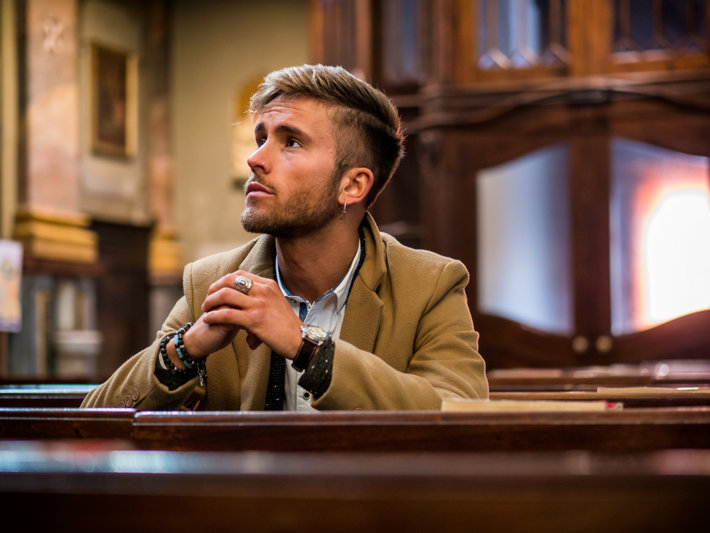
According to a study published this week in the American Journal of Epidemiology, those who engage in weekly religious service attendance, prayer or meditation gain greater life satisfaction, have a lower probability of marijuana use, later sexual initiation, and fewer lifetime sexual partners than those who never attend.
“The effects of religious upbringing, including both service attendance or prayer or meditation, are profoundly positive in protecting against substance abuse and depression, as well as contributing to higher levels of happiness and volunteering,” said study co-author Tyler VanderWeele, the John L. Loeb and Frances Lehman Loeb Professor of Epidemiology at the T.H. Chan School of Public Health at Harvard University.
Young people who regularly attended religious services, prayed or meditated were 12 percent less likely to suffer from depression, 33 percent less likely to use illicit drugs, 18 percent more likely to report high levels of happiness, 87 percent more likely to have high levels of forgiveness, were 40 percent less likely to have an STD, 38 percent more likely to volunteer in their community and 47 percent more likely to have a sense of mission and purpose.
Scientology Founder L. Ron Hubbard defines ethics as “the actions an individual takes on himself. It is a personal thing. When one is ethical or ‘has his ethics in,’ it is by his own determinism and is done by himself.” He defines justice as “the action taken on the individual by the group when he fails to take these actions himself.”
Religions focus on right action and individual responsibility, and that is undoubtedly what is reflected in the study. If one applies ethics, justice is not necessary. The Ten Commandments and Islam’s notion of “enjoining what is right, forbidding what is wrong” are powerful calls to ethical thought and action. But in an irreligious, materialistic society an individual can become rudderless and adrift, requiring police, courts and prisons to maintain order where ethics have foundered.


